Annual health checks
help keep pets healthy
We all know the old saying prevention is better than a cure …
and we all know it’s true!


Annual health checks help keep pets healthy
We all know the old saying prevention is better than a cure … and we all know it’s true!
Why it’s important
We have regular check-ups and high five ourselves when we come out with a clean bill of health, and if not we take our medicine to get back on track and in-shape. The older we get the more often we slip in for a check-up. Think about your furry friends just for one minute. Our animals age far more quickly than we do – an annual vet visit for your dog is the equivalent of you seeing your doctor every seven years! Kind of puts it in perspective when you think about it.
The most common reason given by owners for not taking their pets for an annual health check is time and for vaccinations … simply forgetting when they are due!
Here at Fur Life Vet we want to remind you about how important that annual health check is for your furry family member. Follow along with us to learn a little about the common diseases that affect our pets, the new technology available that can detect some diseases far earlier than previously possible and the reasons why preventative health management provides better outcomes for you and your pet … hands down.
Annual Health Check
Annual Health Checks help keep our pets healthy
We all know the old saying prevention is better than a cure … and we all know its true! We have regular check-ups and high five ourselves when we come out with a clean bill of health, and if not we take our medicine to get back on track and in-shape. The older we get the more often we slip in for a check-up. Think about your furry friends just for one minute. Our animals age far more quickly than we do – an annual vet visit for your dog is the equivalent of you seeing your doctor every seven years! Kind of puts it in perspective when you think about it.
The most common reason given by owners for not taking their pets for an annual health check is time and for vaccinations … simply forgetting when they are due!
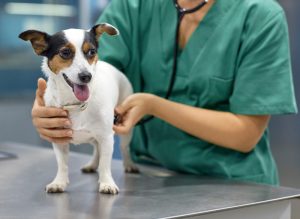
We recommend you bring your pet in every year for a health check.
A yearly check means we can monitor your animal to ensure their ongoing well-being and address any changes that may adversely affect their health as early as possible.
The annual check also provides you with the opportunity to have a chat with us about any concerns you may have, as well as a chance to discuss your pet’s diet, exercise, and parasite prevention.
Vaccinations
Do you know that many of the common diseases that impact our furry family are preventable?
Ensuring your pet’s vaccinations are up to date is one way you can keep them safe from some pretty nasty and often life threatening bugs. After vaccination your pet will develop immunity to the disease they are vaccinated against.
Dogs & Puppies
We currently use a C5 vaccine – this protects against five common or dangerous diseases that are easily spread between animals:
Distemper – this disease can severely impact multiple body systems, and has a high fatality rate. It is no longer common due to several decades of vaccinating, however ongoing vaccination is required to prevent this disease from taking hold again.
Hepatitis – caused by a virus, this disease results in chronic and irreversible liver damage.
Parvovirus – this is a highly resistant virus that causes severe vomiting and diarrhoea, and has caused numerous recent outbreaks in Australia. It requires prolonged and intensive medical therapy, and can be fatal in young animals.
Canine cough – Often called Kennel Cough, this disease is rarely fatal, but can cause severe pneumonia. Our vaccine protects against the two most common forms, Bordatella bronchiseptica(bacteria) and Canine Parainfluenza (virus).
Vaccinating Puppies
Puppies gain some protection from their mother’s milk (as long as the mother has immunity) but this protection gradually declines around 6-8 weeks of age and we need to commence a vaccination program.
- 1st Vaccination: 6–8 weeks
- 2nd Vaccination: 10+ weeks. If a puppy commences the program after 10 weeks of age, only one vaccination is required. This is NOT a reason to delay vaccination until then as the puppy will be unprotected between 6–10 weeks.
- 3rd Vaccination is a kennel cough booster vaccination (if an intranasal vaccination was not given as part of the 2nd Vaccination) and final health check.
Vaccinating Adult Dogs
Adult dogs require their 1st booster vaccination 12 months following their puppy course, which is usually around 15 months of age.
- Triannual C3 Vaccinations – C3 vaccination lasts for 3 years in adult dogs.
- Annual Canine Cough Vaccination – needs to be given annually.
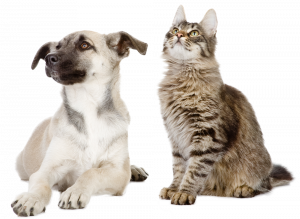
Cats & Kittens
We have different levels of vaccinations for our feline friends. Our base vaccination is the F4. This covers for:
Panleukopaenia – the cat equivalent of canine parvovirus.
Herpesvirus – this causes significant disease of the upper airways and inflammation of the eyes. Cats become lifelong carriers, and stress can cause the disease to flare up and make your cat sick again. While the flare-ups can be treated, there is no cure.
Calicivirus – This also causes upper respiratory tract disease, and affected cats often develop severe ulcers in their mouth. As with herpesvirus, cats become lifelong carriers and the disease can flare up when stressed. While the flare-ups can be treated, there is no cure.
Chlamydiosis – This bacteria causes severe conjunctivitis and may also cause a respiratory tract infection. While it can be treated, it is debilitating, and has the potential to be fatal in young kittens.
In addition to these four core vaccines, we also offer vaccination against Feline Leukaemia Virus (FeLV) and Feline Immunodeficiency Virus (FIV).
FeLV – can severely impact a number of different body systems, and infected cats are at high risk of developing cancer. It significantly shortens lifespan.
FIV – most commonly causes suppression of the immune system, making cats more prone to developing other diseases and making it harder to recover.
Also significantly shortens lifespan. (Further information about FIV on then left).
The most common route of infection for both of these diseases is through saliva, and thus is a particularly high risk for cats that get into fights.
If your cat goes outdoors, we strongly recommend they be vaccinated against these two diseases.
Vaccinating Kittens
F5 Vaccination
- 1st Vaccination: 8 weeks.
- 2nd Vaccination: Minimum 12 weeks (or 4 weeks after 1st).
FIV Vaccination
- 1st Vaccination: 8 weeks
- 2nd Vaccination: 12 weeks
- 3rd Vaccination: 14-16 weeks
Vaccinating Cats 6 months +
Vaccinating Cats – 6 months of age
- F5 Vaccination – two vaccinations 4 weeks apart.
FIV Vaccination
- Will need a blood test to make sure the cat is negative for FIV, then three vaccinations given at 2-4 week intervals.
Annual Vaccination
- Both F4 and FIV vaccinations require annual boosters.
Pet Dentals
Dental disease is caused by the accumulation of plaque. Plaque is the thin, sticky film that covers teeth and is composed of bacteria and their by-products, saliva, food particles and sloughed epithelial cells. Much the same as with our own teeth.
Four ways to prevent dental disease:
- Appropriate food
- Pet Dental chews
- Brushing your pet’s teeth
- Regular veterinary dental check-up
- Dogs over the age of 3 with dental disease 80%
- Cats over the age of 3 with Dental disease 70%
Signs of dental disease
There are various signs you can look out for in your pet, these are:
- Bad Breath (halitosis)
- Discoloured or loose teeth
- Excessive drooling, sometimes blood stained
- Dropping of food from the mouth when eating, or reluctant to eat, especially hard food
- Pain when handled around the head or behavioural changes
- Facial swelling pawing at the mouth Inflamed (gingivitis) or receding gums
Pet dental treatment
A dental treatment involves:
- Full veterinary pre-operative health assessment
- Admission and discharge appointments.
- General anaesthetic including intravenous fluids
- Professional scaling to remove tartar.
- Charting of the mouth to look for tooth decay, pain and mouth cancers
- Polishing of the teeth so they shine
- Advice on home-care to keep that smile sparkling
For more information about your pets specific dental health we encourage you to make an appointment for a dental assessment.

Parasites
We offer a variety of parasite prevention products in our clinics to cover all the parasite groups discussed below. Our products are top of the range, whereas many supermarket products cannot guarantee sufficient protection. Please come in and have a chat to our staff … they can help you determine which parasite prevention products best suit your needs.
Fleas
While these pesky bugs are most common in the warm weather, your pet can be infested all year round. Although fleas particularly love warm sandy environments, they can be found anywhere, including being tracked though your yard by strays and wildlife. In very severe cases, particularly in young animals, flea burdens can be life threatening.
Maintaining flea control, and regularly washing your pet’s bedding in a hot wash, are some easy but important ways to keep them healthy and itch free.
Ticks
We are unfortunate enough to share this part of the world with a species of paralysis tick. These ticks are most commonly found in bush and beach regions, so keeping your furry friend protected when travelling through these areas, particularly in the warm weather, is paramount. Tick paralysis requires intensive medical intervention, and if left untreated is fatal.
Heartworm
This parasite is spread by mosquitoes, and is particularly dangerous because by the end of a complex life cycle, the adult worms reside in the heart and all the major blood vessels from it, which can lead to some serious and potentially fatal cardiac complications.
It is predominantly a parasite found further north in Australia. However, there have been isolated cases of heartworm in the region over the last few years, and the potential for the disease to be carried into the area by another animal is high.
If your pet is not up to date with heartworm prevention, it is extremely important to get them tested before starting any heartworm prevention product. Prevention products can kill all stages of heartworm at once, and if your pet happens to be heartworm positive with adult worms living in their circulatory system, this can result in blockages (embolism) that will likely be fatal.
Intestinal Worms
Dogs & Puppies
There are four common types of intestinal worms in dogs, they are: roundworms, hookworms, whipworms and tapeworms. The symptoms of each type of worm vary, as does the way in which dogs can be infected.
Roundworm
There are two species of roundworm which can affect dogs, toxocara canis and toxascaris leonin. Both are long, white and spaghetti-like in appearance and absorb nutrients from the infected dog.
Roundworm larvae will initially infect a dog’s intestinal tract, but can burrow their way into other bodily tissues and organs. As toxocara canis larvae mature, they will move onto the lungs to develop and then then up to the airway before being coughed up and swallowed again, re-entering the intestine to complete their lifecycle. Toxascaris leonina do not move around the body and have a far simpler lifecycle.
Hookworm
Hookworms are short, blood sucking parasites with teeth. They can be fatal in young puppies, due to the amount of nutrients they strip from the dog. They are not common in the UK but they are present in Europe. Hookworms have a very similar lifecycle to the toxocara canis roundworm, moving about the body and into the lungs to mature before re-entering the intestine.
Whipworm
Whipworms live in the large intestine and don’t extract as many nutrients as other types of worms. Unless the worms burrow into the intestinal tissue, they pose few problems and rarely cause symptoms. They do occur in the UK but aren’t common.
Tapeworm
Tapeworms live in the small intestine, grabbing on to its wall with six tiny rows of teeth to absorb nutrients as food is digested. They are long – half a foot or more in length – and flat in appearance. Unless the dog is extremely active, the parasite does not harm the pet, as there are plenty of nutrients to serve both host and tapeworm. When excreted, the worm normally splits into segments which look like small grains of rice.
Cats & Kittens
Kittens need worming against roundworm every two weeks from six-16 weeks old. Check that the product is appropriate for the age and weight of the kitten. Adult cats should be wormed regularly, and when feeding kittens. Recommended frequency depends on whether good quality flea treatment is given regularly, and if the cat is able to hunt. It is probably sensible to treat most cats at least four times a year.
Some tapeworms – which look like grains of rice in the faeces (excrement) – are caught from fleas, so a good quality programme for flea control is essential – consult your vet.
Desexing
Desexing is the only effective permanent method for preventing unwanted pregnancy in animals, and provides important health benefits as well.
Desexing surgery involves the removal of the testicles of males, known as castration or ‘neutering’, or the ovaries and uterus of females, known as ovariohysterectomy or ‘spaying’.
Your pet will be desexed under general anaesthesia. As most animals undergoing desexing are young and healthy, complications are rare. In addition, the anaesthetic will be closely monitored throughout the procedure to ensure the safety of your pet. Post surgery our nursing team will monitor and care for your pet until he or she is ready to go home.
Benefits of Desexing
There are important benefits associated with having your pet desexed.
Social benefits
- Reduction in territorial behaviours such as urine marking.
- Reduction in noisy calling behaviours.
- Reduction in anti-social behaviour.
- Reduction in wandering.
Health benefits
- Reduction in risk of some malignant cancers, in organs such as the testes, ovaries, cervix, or uterus.
- Prevention of infection of the uterus, or pyometra.
- Reduction in risk of some serious diseases, such as prostatic disease and perineal hernia, in male dogs that haven’t been castrated.
Financial benefits
- Prevention of costs associated with unwanted litters.
- Avoidance of costs associated with the serious medical diseases listed above.
- Discounted council pet registration fees.
Pet Insurance
Pet Insurance has many benefits, most of which is peace of mind. Many of us consider our pets to be part of the family. Although when a pet becomes injured or sick, the reality of veterinary costs can come as quite a shock. Those that have chosen to insure their dogs or cats can focus on their health rather than the costs.
It is common for some clients to assume that a Medicare rebate is available for pets, but there are unfortunately no subsidies for veterinary care, including both preventative and emergency procedures.
The costs associated with providing high quality veterinary care to your beloved pet can be very expensive, particularly in emergency situations, and we find that most people are unprepared! It is for this reason that we strongly recommend that all of our clients consider a pet insurance plan. This covers your responsibility as a loving and caring owner to provide the best treatment for your four-legged companion who is completely dependent upon you for their health and wellbeing.
Ask our Reception team for a PetPlan Pet Insurance brochure or visit www.petplan.com.au
VetPay
VetPay is specifically designed to help you pay for veterinary expenses without the worry of high upfront costs, particularly for emergency or unplanned medical treatments. VetPay sets up a payment plan and debits your bank account or credit card and pays your Fur Life Vet for the services provided. You can even get pre-approval for VetPay with no obligation to use it!
We understand how heartbreaking it can be when a beloved pet requires extensive veterinary treatment and the funds are not readily available. In some cases, this can mean owners are forced to make a decision not to treat their animal.
Our payment policy is that ALL visits are paid for at the end of each consultation and surgery. For this reason, we have paired up with a company called VetPay to cover the costs of those emergency visits that can unfortunately surprise us all. VetPay is a company that focuses in providing small loans specifically for veterinary treatment.
The process of applying with VetPay involves a quick and simple approval process with us at the clinic and a small 10-20% deposit is made (dependent on the price of the procedure).
VetPay will then pay for all of your pet’s treatment on the spot, while you make small repayments over time. VetPay is very flexible and will try their hardest to meet your needs, as we understand that each situation is completely different.
For more information on VetPay, or to seek initial approval, please visit www.vetpay.com.au, or give them a call on 1300 657 984.
We recommend you bring your pet in every year for a health check. A yearly check means we can monitor your animal to ensure their ongoing well-being and address any changes that may adversely affect their health as early as possible. The annual check also provides you with the opportunity to have a chat with us about any concerns you may have, as well as a chance to discuss your pet’s diet, exercise, and parasite prevention. We all know the old saying prevention is better than a cure … and we all know its true! We have regular check-ups and high five ourselves when we come out with a clean bill of health, and if not we take our medicine to get back on track and in-shape. The older we get the more often we slip in for a check-up. Think about your furry friends just for one minute. Our animals age far more quickly than we do – an annual vet visit for your dog is the equivalent of you seeing your doctor every seven years! Kind of puts it in perspective when you think about it. The most common reason given by owners for not taking their pets for an annual health check is time and for vaccinations … simply forgetting when they are due!Annual Health Check
Annual Health Checks help keep our pets healthy
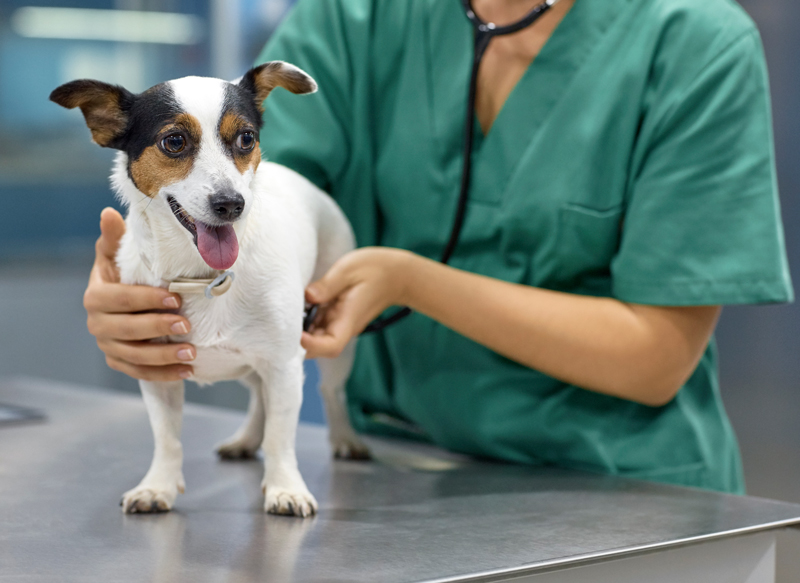
Ensuring your pet’s vaccinations are up to date is one way you can keep them safe from some pretty nasty and often life threatening bugs. After vaccination your pet will develop immunity to the disease they are vaccinated against. We currently use a C5 vaccine – this protects against five common or dangerous diseases that are easily spread between animals: Distemper – this disease can severely impact multiple body systems, and has a high fatality rate. It is no longer common due to several decades of vaccinating, however ongoing vaccination is required to prevent this disease from taking hold again. Hepatitis – caused by a virus, this disease results in chronic and irreversible liver damage. Parvovirus – this is a highly resistant virus that causes severe vomiting and diarrhoea, and has caused numerous recent outbreaks in Australia. It requires prolonged and intensive medical therapy, and can be fatal in young animals. Canine cough – Often called Kennel Cough, this disease is rarely fatal, but can cause severe pneumonia. Our vaccine protects against the two most common forms, Bordatella bronchiseptica(bacteria) and Canine Parainfluenza (virus). Puppies gain some protection from their mother’s milk (as long as the mother has immunity) but this protection gradually declines around 6-8 weeks of age and we need to commence a vaccination program. Adult dogs require their 1st booster vaccination 12 months following their puppy course, which is usually around 15 months of age. F5 Vaccination FIV Vaccination Vaccinating Cats - 6 months of age FIV Vaccination Annual Vaccination What is FIV? How is FIV spread? Who is susceptible? Public Health Risks? Is there a treatment? How do I prevent my cat from FIV? 1. Prevent exposure 2. Vaccination 3. FIV blood test Kittens 1st dose – 4 weeks Adult Rabbits 2 doses at 4 week intervals Twice yearly booster Every 6 months after finishing initial course We have different levels of vaccinations for our feline friends. Our base vaccination is the F4. This covers for: Panleukopaenia – the cat equivalent of canine parvovirus. Herpesvirus – this causes significant disease of the upper airways and inflammation of the eyes. Cats become lifelong carriers, and stress can cause the disease to flare up and make your cat sick again. While the flare-ups can be treated, there is no cure. Calicivirus – This also causes upper respiratory tract disease, and affected cats often develop severe ulcers in their mouth. As with herpesvirus, cats become lifelong carriers and the disease can flare up when stressed. While the flare-ups can be treated, there is no cure. Chlamydiosis – This bacteria causes severe conjunctivitis and may also cause a respiratory tract infection. While it can be treated, it is debilitating, and has the potential to be fatal in young kittens. In addition to these four core vaccines, we also offer vaccination against Feline Leukaemia Virus (FeLV) and Feline Immunodeficiency Virus (FIV). FeLV – can severely impact a number of different body systems, and infected cats are at high risk of developing cancer. It significantly shortens lifespan. FIV – most commonly causes suppression of the immune system, making cats more prone to developing other diseases and making it harder to recover. Also significantly shortens lifespan. (Further information about FIV on then left). The most common route of infection for both of these diseases is through saliva, and thus is a particularly high risk for cats that get into fights. If your cat goes outdoors, we strongly recommend they be vaccinated against these two diseases. Because of the potentially severe nature of these two diseases, any cat older than 6 months with an unknown FeLV/FIV history will require a blood test beforehand to confirm that they do not already have these diseases. Vaccinating for these diseases in a cat that is already positive can result in your pet becoming extremely sick. This test is done in our clinic and only takes 10 minutes to get results.Vaccinations
Do you know that many of the common diseases that impact our furry family are preventable?

Dogs & Puppies
Vaccinating Puppies
Vaccinating Adult Dogs
Vaccinating Kittens
Vaccinating Cats 6 Months Plus
Feline Immunodeficiency Virus (FIV)
Feline Immunodeficiency virus (FIV), commonly known as feline aids, is a virus similar to the human immunodeficiency virus (HIV). Once infected, FIV causes a lifelong infection that leads to immune suppression. A FIV infected cat may not show any clinical signs for several years. Due to poor immune function, however, a FIV infected animal is susceptible to a variety of other diseases that may lead to severe illness.
FIV is shed in saliva and, hence, spread by direct bite wounds between cats.
Cats of all ages are susceptible. Aggressive biting behaviour with stray and feral cats poses risk to any free-roaming, outdoor cat. High risk factors include sexually intact, male cats, living outdoors due to their tendency to display territorial fighting behaviour. Multi-cat households or high density habitats also increase the risk of territorial fighting and, hence, spread of FIV.
It should be noted that FIV is host specific to feline species (including the domestic cat, lions, tigers, leopards, panthers etc) and cannot be spread to other species, including humans.
Due to their immunosuppressed state, FIV infected cats are susceptible to a variety of diseases; some of which may pose human threat. Humans who are immunosuppressed must be particularly careful.
There is no cure for FIV; infection with FIV is life-long. Supportive treatment, however, can be offered. Furthermore, treatment may be directed at concurrent disease.
Stop your cat from roaming freely outdoors. Spay or neuter your cat to reduce free-roaming and fighting behaviour.
A killed vaccine is available for prevention against FIV. Cats may be vaccinated from eight weeks of age. Any outdoor, freely roaming cat should be vaccinated to prevent infection with FIV. A full vaccination course should be completed before allowing your cat outdoors. An initial vaccination course requires 3 doses. Thereafter, yearly boosters are required. FIV positive cats cannot be vaccinated. Therefore, cats older than 6 months of age and unvaccinated must be tested for FIV infection before vaccination.
An in-house blood test can be conducted to rule out FIV infection. Cats older than 6 months of age and unvaccinated should be tested for FIV infection. Before introducing a new cat (> 6 months) into the household we recommend testing for FIV infection. If your cat has been exposed to FIV (unvaccinated and freely roaming outdoors), we recommend testing to rule out FIV infection.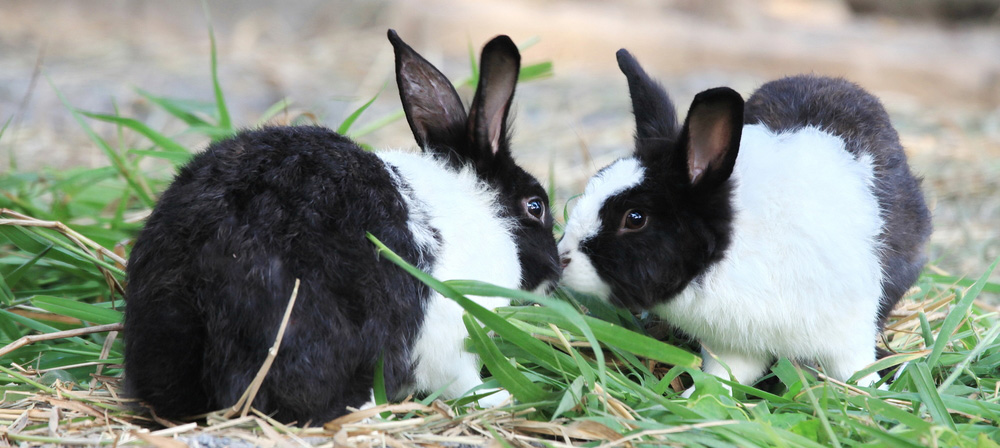
Vaccinating Rabbits
2nd and 3rd dose at 4 weeks intervals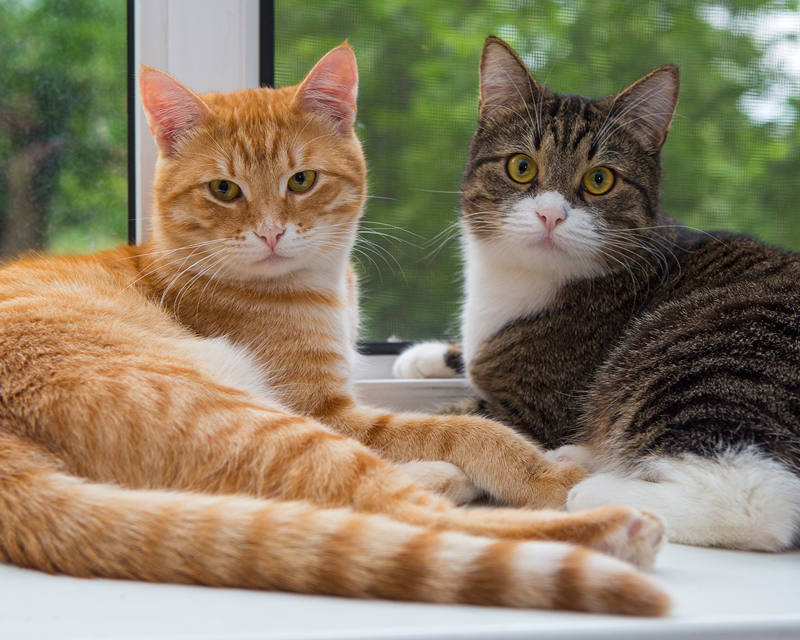
Cats & Kittens
Dental disease is caused by the accumulation of plaque. Plaque is the thin, sticky film that covers teeth and is composed of bacteria and their by-products, saliva, food particles and sloughed epithelial cells. Much the same as with our own teeth. There are various signs you can look out for in your pet, these are: A dental treatment involves: For more information about your pets specific dental health we encourage you to make an appointment for a dental assessment.Pet Dentals
Four ways to prevent dental disease:

Signs of dental disease
Pet dental treatment
We offer a variety of parasite prevention products in our clinics to cover all the parasite groups discussed below. Our products are top of the range, whereas many supermarket products cannot guarantee sufficient protection. Please come in and have a chat to our staff ... they can help you determine which parasite prevention products best suit your needs. While these pesky bugs are most common in the warm weather, your pet can be infested all year round. Although fleas particularly love warm sandy environments, they can be found anywhere, including being tracked though your yard by strays and wildlife. In very severe cases, particularly in young animals, flea burdens can be life threatening. Maintaining flea control, and regularly washing your pet’s bedding in a hot wash, are some easy but important ways to keep them healthy and itch free. We are unfortunate enough to share this part of the world with a species of paralysis tick. These ticks are most commonly found in bush and beach regions, so keeping your furry friend protected when travelling through these areas, particularly in the warm weather, is paramount. Tick paralysis requires intensive medical intervention, and if left untreated is fatal. This parasite is spread by mosquitoes, and is particularly dangerous because by the end of a complex life cycle, the adult worms reside in the heart and all the major blood vessels from it, which can lead to some serious and potentially fatal cardiac complications. It is predominantly a parasite found further north in Australia. However, there have been isolated cases of heartworm in the region over the last few years, and the potential for the disease to be carried into the area by another animal is high. If your pet is not up to date with heartworm prevention, it is extremely important to get them tested before starting any heartworm prevention product. Prevention products can kill all stages of heartworm at once, and if your pet happens to be heartworm positive with adult worms living in their circulatory system, this can result in blockages (embolism) that will likely be fatal.Parasite Protection

Fleas
Ticks
Heartworm
Desexing is the only effective permanent method for preventing unwanted pregnancy in animals, and provides important health benefits as well. Desexing surgery involves the removal of the testicles of males, known as castration or 'neutering', or the ovaries and uterus of females, known as ovariohysterectomy or 'spaying'. Your pet will be desexed under general anaesthesia. As most animals undergoing desexing are young and healthy, complications are rare. In addition, the anaesthetic will be closely monitored throughout the procedure to ensure the safety of your pet. Post surgery our nursing team will monitor and care for your pet until he or she is ready to go home. There are important benefits associated with having your pet desexed. In general, we recommend desexing your pet between 3–6 months of age. However your pets breed and size and your circumstances should be taken into account when deciding on the appropriate time. Not all pets are the same so it’s best to speak to one of our vets about the best age recommendation for your pet and specific circumstances.Desexing your pet
Benefits of Desexing
Social benefits
Health benefits
Financial benefits
When should I desex my pet?
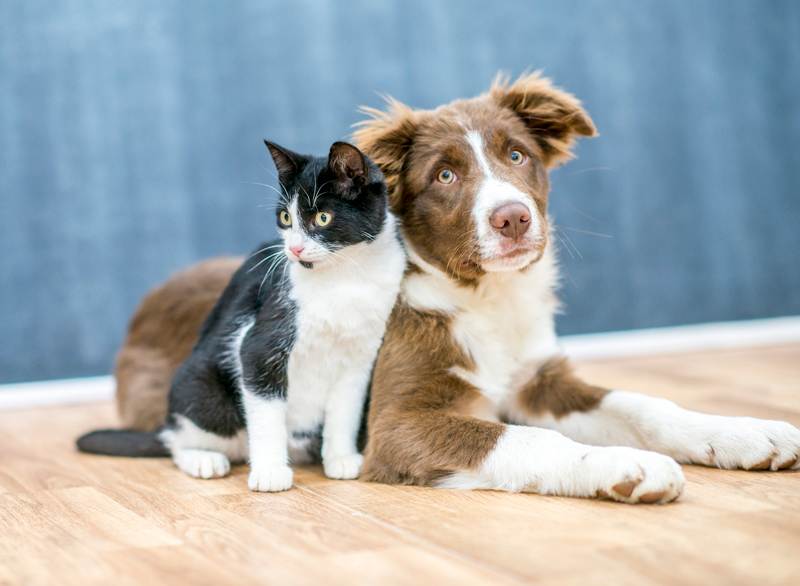
Pet Insurance and Vet Pay
Pet Insurance has many benefits, most of which is peace of mind. Many of us consider our pets to be part of the family. Although when a pet becomes injured or sick, the reality of veterinary costs can come as quite a shock. Those that have chosen to insure their dogs or cats can focus on their health rather than the costs.
VetPay is specifically designed to help you pay for veterinary expenses without the worry of high upfront costs, particularly for emergency or unplanned medical treatments. VetPay sets up a payment plan and debits your bank account or credit card and pays your Fur Life Vet for the services provided. You can even get pre-approval for VetPay with no obligation to use it!
Pet Insurance
It is common for some clients to assume that a Medicare rebate is available for pets, but there are unfortunately no subsidies for veterinary care, including both preventative and emergency procedures. The costs associated with providing high quality veterinary care to your beloved pet can be very expensive, particularly in emergency situations, and we find that most people are unprepared! It is for this reason that we strongly recommend that all of our clients consider a pet insurance plan. This covers your responsibility as a loving and caring owner to provide the best treatment for your four-legged companion who is completely dependent upon you for their health and wellbeing.
Ask our Reception team for a PetPlan Pet Insurance brochure or visit www.petplan.com.au
VetPay
We understand how heartbreaking it can be when a beloved pet requires extensive veterinary treatment and the funds are not readily available. In some cases, this can mean owners are forced to make a decision not to treat their animal.
Our payment policy is that ALL visits are paid for at the end of each consultation and surgery. For this reason, we have paired up with a company called “VetPay” to cover the costs of those emergency visits that can unfortunately surprise us all. VetPay is a company that focuses in providing small loans specifically for veterinary treatment. The process of applying with VetPay involves a quick and simple approval process with us at the clinic and a small 10-20% deposit is made (dependent on the price of the procedure). VetPay will then pay for all of your pet’s treatment on the spot, while you make small repayments over time. VetPay is very flexible and will try their hardest to meet your needs, as we understand that each situation is completely different.
For more information on VetPay, or to seek initial approval, please visit www.vetpay.com.au, or give them a call on 1300 657 984.
Your Local Fur Life Vet
Warrnambool Veterinary
Warrnambool 03 5559 0222
Port Fairy 03 5568 6222
Koroit 03 5559 0260
Nullawarre 03 5559 0270
Follow us on Facebook
Keep up-to-date with our latest services, offers and events. And dont forget to subscribe to our super cool eNewsletter too!

